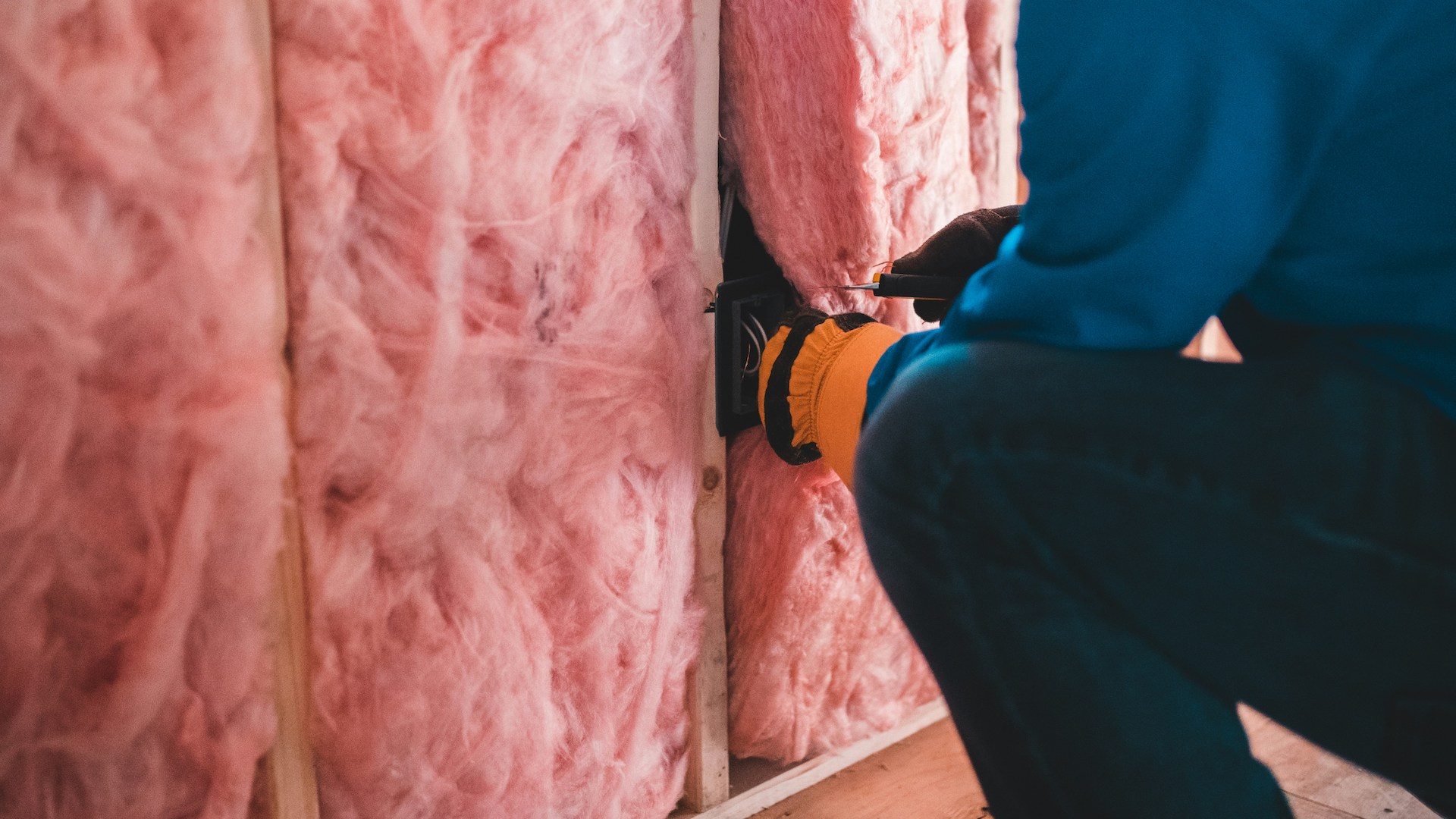Disabled people can apply for a disabled facilities grant, which helps cover the cost of adaptations to make a home meet their needs better. Learn more about the disabled facilities grant here.
What can you use a home improvement grant for?
Home improvement grants can be used for a wide variety of projects, depending on the specific grant and the needs of the homeowner or tenant.
Many home improvement grants are used to pay for essential repairs, particularly for older homes that might have structural issues or need urgent maintenance. This can include repairing roofs, fixing damp problems, replacing windows or upgrading plumbing and electrical systems to meet current safety standards.
Improving the energy efficiency of homes is a major focus of many home improvement grants – and the number is increasing as the fight to meet climate goals gets more urgent.
The Energy Company Obligation (ECO), for example, is an initiative that sees energy suppliers help to make changes in the homes of people struggling to afford gas and electricity. They might install insulation or introduce a more efficient heating system. Ofgem directs the scheme on behalf of the government.
This programme and other environment-focused grants can be used to replace old boilers with better models, upgrade windows to double or triple glazing, or even install renewable energy sources like solar panels. The work made possible by these schemes not only helps reduce carbon footprints but also lower energy bills.
Advertising helps fund Big Issue’s mission to end poverty
“Access to grants, loans, and financial schemes varies depending on where you live,” an Energy Saving Trust spokesperson told the Big Issue.
“The Great British Insulation Scheme aims to upgrade the least energy efficient homes in England, Wales and Scotland. It can help you get free or cheaper home insulation, which will keep your home warmer for longer and limit unnecessary heat loss.
“You can receive one of the following energy efficiency upgrades at no cost or at a reduced price: cavity wall insulation, heating controls, loft insulation, solid wall insulation, and floor insulation. The process is managed entirely by your energy supplier, so you won’t receive any direct funds to purchase the insulation yourself.”
Experts are waiting for confirmation from the new UK government that funding for the scheme will continue.
People in England and Wales can also access the boiler upgrade scheme, the spokesperson said, which offers grants of £7,500 towards the cost and installation of three types of low carbon heating systems: air source heat pumps, ground source heat pumps – including water source heat pumps – and biomass boilers.
“Reducing energy demand through insulating homes and installing low carbon, electrified heating, such as heat pumps, are a central part of getting us to our climate goals,” they added.
Advertising helps fund Big Issue’s mission to end poverty
“Heat pumps are more energy efficient than traditional gas or oil boilers and they produce fewer carbon emissions.
“The more people who can access schemes that fund energy efficiency upgrades in their homes, the greater the reduction in carbon emissions.”
For those with specific needs, such as elderly or disabled people, home improvement grants can cover the cost of vital changes to a property. This might include installing ramps, stairlifts or accessible bathrooms. While the disabled facilities grant specifically covers a lot of these types of upgrades, other home improvement grants can sometimes be used to fund similar projects.
In some cases, grants can be used for more general home improvements that enhance the appearance and functionality of a property, like kitchen or bathroom renovations – but these types of grants are less common and are usually targeted at specific groups or areas.
How to find out if you’re eligible
Eligibility for home improvement grants varies depending on the specific grant and where you live. Things like income, the condition of a home, age and disability can all be important factors when a decision is being made about an application.
If you own your home
Homeowners tend to be the main recipients of home improvement grants. If you own your home, eligibility will typically depend on your income level, the type of improvements needed and the value of your property. Some grants are specifically aimed at low-income households, older homeowners or people living in areas with specific environmental or social challenges.
Advertising helps fund Big Issue’s mission to end poverty
It’s a good idea to start by contacting your local authority to find out if you meet the criteria for a home improvement grant. They can give you information on the grants available in your area and guide you through the application process. Some grants are means-tested, meaning you will need to share information about your income and savings.
If you’re renting
Tenants can also apply for home improvement grants if they need help with the home they’re renting, although the process is slightly different and not all grants will be available to renters. You’ll need the landlord’s permission before any upgrades can be made, and in some cases the grant might be paid directly to the landlord who would then arrange for the necessary work to be done.
Applying for a home improvement grant
Applying for a home improvement grant can vary depending on the type of grant and what organisation offers it.
Start by researching the grants available in your area. Local or central government websites as well as and organisations like home improvement agencies can give you information specific to your area and circumstances. You can search online for a nearby home improvement agency, too.
Before applying, make sure you have all the information you might need to prove your eligibility. This might involve proof of income, that you own your home, have the landlord’s permission, or the details of your disability or health condition.
The application process usually involves filling out forms, providing documentation and, in some cases, having someone assess your home. For grants related to home adaptations, an occupational therapist might visit your home to find out what improvements are necessary.
Advertising helps fund Big Issue’s mission to end poverty
Once your application is submitted it will be reviewed by the council. If approved you’ll be informed of the next steps, which could include arranging for the work to be carried out by approved contractors.
You may need to submit proof of the completed improvements, like invoices or certificates, after the work is complete. The grant might only then be paid, either directly to the contractor or reimbursed to you, depending on the terms agreed in advance.
Home improvement grants for foster carers in the UK
Foster carers can apply for home improvement grants to make necessary modifications to their homes, including adding extra bedrooms or making safety improvements. These grants are particularly important for making sure that foster homes are a safe and welcoming environment for children.
The availability of these grants can vary by region, with local authorities often offering extra support to foster carers. The grants might cover the full cost of the required improvements in some cases, while in others they could be offered as part of a larger cash support package for foster families.
If you’re a foster carer, it’s essential to contact your local authority to find out what specific grants and support are available to you. The application process is similar to other home improvement grants, but there could extra things to consider related to fostering regulations and standards.
Do you have a story to tell or opinions to share about this? Get in touch and tell us more. Big Issue exists to give homeless and marginalised people the opportunity to earn an income. To support our work buy a copy of the magazine or get the app from the App Store or Google Play.
Advertising helps fund Big Issue’s mission to end poverty









